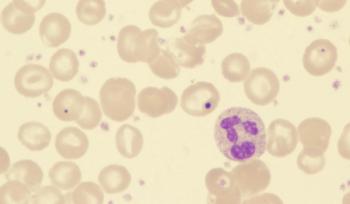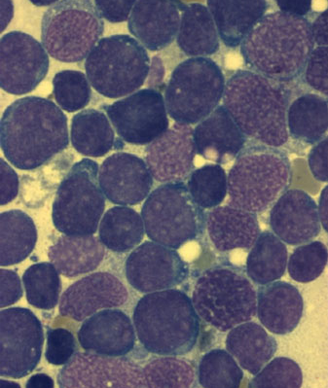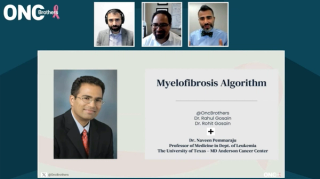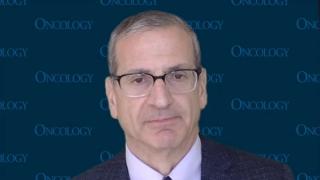
Hematologic Oncology
Latest News
Latest Videos

More News

Results from a phase 1a trial showed that NX-5948 yielded an overall response rate of 77.8% in later lines of treatment for patients with WM.

Results from the phase 3 AVA-PED-301 trial support the FDA decision for avatrombopag in pediatric thrombocytopenia.

Selinexor Combo Shows Activity in Myelofibrosis Spleen Responses, Symptoms
More than 80% of the SENTRY trial population had alleviation of their myelofibrosis-associated symptoms following treatment with selinexor/ruxolitinib.

Navtemadlin yields improvements in symptom score reductions ad spleen volume reduction among patients with relapsed/refractory myelofibrosis.

NFKB1 rs230511 genetic variant improves treatment outcomes for patients with polycythemia vera and essential thrombocythemia.

Atrial fibrillation occur at a smaller likelihood with second-generation BTK inhibitors vs first-generation BTK inhibitors in B-cell hematologic cancers.

Navtemadlin shows influence in myelofibrosis hallmarks such as CD34-positive cell proliferation and pro-inflammatory cytokines in the phase 3 BOREAS trial.

CancerNetwork co-hosts Kristie L. Kahl and Andrew Svonavec highlight abstracts to look out for surrounding the multidisciplinary approach at the upcoming ASH Annual Meeting in San Diego, with some additional tidbits to round out the main event.

Greater direct access to academic oncologists may help address challenges associated with a lack of CAR T education in the community setting.

Findings from the Phase 3 AURIGA trial support the use of lenalidomide plus daratumumab vs lenalidomide alone as post-transplant maintenance therapy for patients with newly diagnosed multiple myeloma.

Certain bridging therapies and abundant steroid use may complicate the T-cell collection process during CAR T therapy.

Educating community practices on CAR T referral and sequencing treatment strategies may help increase CAR T utilization.

David M. Swoboda, MD, and Andrew Kuykendall, MD, spoke about the current treatment strategies and potential advancements that may improve outcomes such as spleen volume reduction in the myelofibrosis field.

Hematologic cell transplantation use rates have improved, although they still show disparities for minority groups such as non-Hispanic Black populations.

Posttransplant cyclophosphamide leads to unique changes in vascular biomarkers, revealing a distinct toxicity profile compared to other GVHD prophylaxis regimens.

Leveraging Ex Vivo Gene Therapy Advancements in Hemoglobinopathies and Metabolic Diseases
A panel of expert pharmacists provides their perspectives on gene therapy agents such as exagamglogene autotemcel in the management of sickle cell disease.

These findings demonstrate the potential risks associated with CNI-based immunosuppression in stem cell transplantation without concurrent strategies to eliminate alloreactive T cells.

Data from the IMerge trial affirm the enduring responses and clinical benefit with imetelstat in those with transfusion-dependent MDS.

Data from the PERSEUS trial support the benefit of D-VRd and DR maintenance as a standard of care in transplant-eligible newly diagnosed multiple myeloma.

A ready-to-use subcutaneous or intravenous injection of bortezomib for multiple myeloma and MCL has been approved by the FDA.

Managing Secondary Cancer Risks After CAR T-Cell Therapy in Multiple Myeloma Subgroups
Experts in multiple myeloma weigh the benefits and risks of administering CAR T-cell therapy to patients based on prior reports of secondary malignancies.

A recent study investigated the incidence and clinical outcomes of acute graft-versus-host disease following post-transplantation cyclophosphamide-based prophylaxis in hematopoietic cell transplantation.

The Best of CAR T at the 2024 Tandem Meetings Webinar Series, which aired on June 27, 2024, aimed to provide a comprehensive overview of the latest advancements and research in CAR T cell therapy.

A watch-and-wait method was implemented when vitamin D was given prior to treatment for chronic lymphocytic leukemia.

Results from the phase 2 AGAVE-201 trial of axatilimab for patients with relapsed/refractory chronic GVHD support the FDA approval.
















































